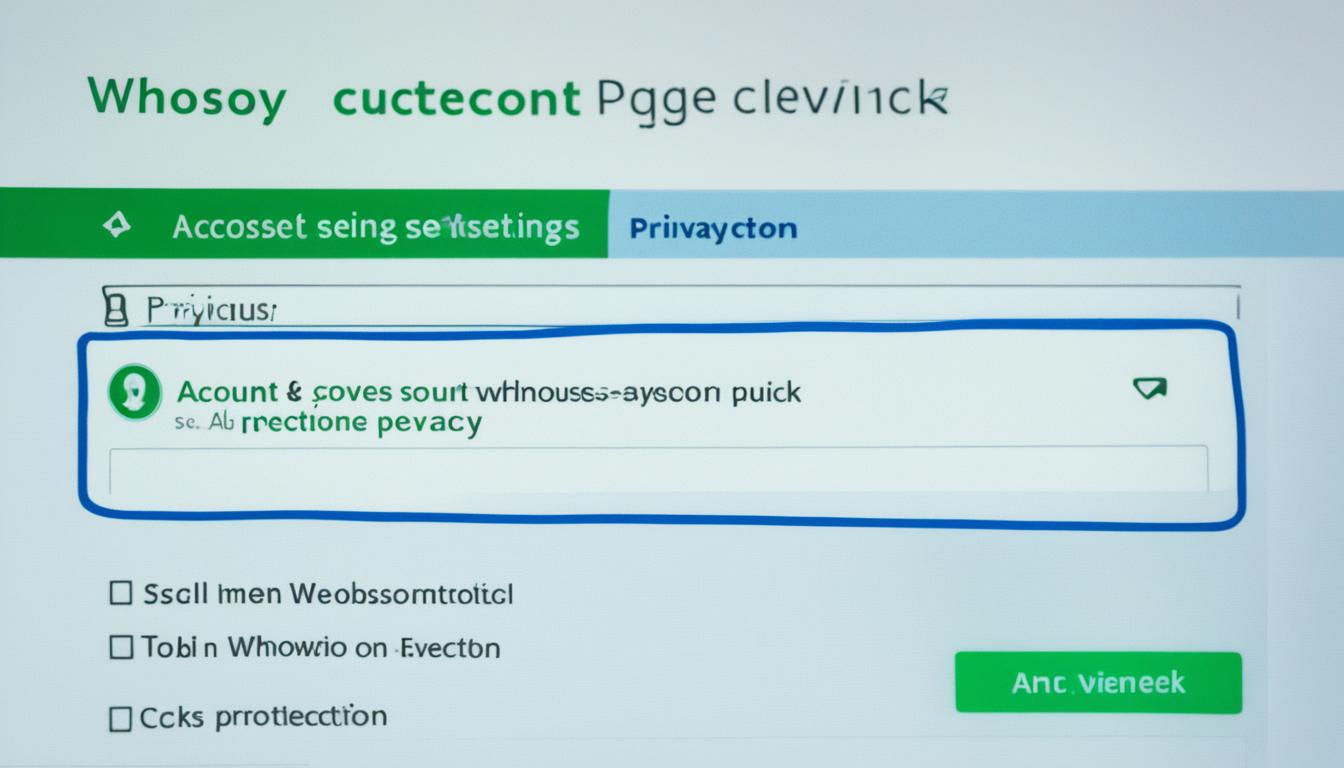Godaddy – What happens if I let my domain expire?
Did you know that your domain registration can expire, leading to potential consequences for your online presence? It’s a surprisingly common occurrence among website owners and businesses. Letting your domain expire can have a significant impact on your brand identity, website traffic, and overall online visibility. Understanding what happens after your domain expiration is crucial to avoid any unwanted outcomes.
Key Takeaways:
- Letting your domain expire can result in consequences such as losing brand identity, website traffic, and online visibility.
- Godaddy follows a specific process for handling expired domains, including auto-renewal attempts, auctions, and redemption periods.
- Reclaiming an expired domain at Godaddy involves contacting customer support and exploring renewal, redemption, or auction options.
- Godaddy offers Business Protection to prevent accidental failed renewals and ensure the protection of domain names.
- Preventing future domain expiration issues can be achieved by maintaining up-to-date records, setting reminders, and utilizing additional protection services.
Understanding Domain Expiration and Renewal
When it comes to domain registration, understanding the expiration and renewal process is crucial. At Godaddy, the expiration of a domain depends on the registration date and the chosen term length. When a domain registration expires, you have two options: renew the domain or let it expire.
For businesses and individuals with an online presence, allowing a domain to expire can have consequences. It can result in losing the brand identity associated with the domain, impacting website visibility and online credibility.
At Godaddy, the consequences of letting a domain expire are as follows:
- Auto-Renewal Attempts: Godaddy makes multiple attempts to automatically renew your domain within 30 days before and after its expiration date. However, if the automatic renewal is unsuccessful, the domain proceeds to the next step.
- Auction: The domain is sent to auction, where interested parties can bid on it. This gives you, as the original owner, an opportunity to reclaim your domain within a certain timeframe.
To make an informed decision about your expired domain, it is recommended to contact customer service or check Godaddy’s expiration process. They can provide guidance on options such as renewing the domain, redeeming it, bidding in the auction, or purchasing a backorder.
The Process of an Expired Domain at Godaddy
When a domain registration expires at Godaddy, a specific process is followed to handle expired domains. Let’s take a closer look at each step:
1. Auto-Renewal Attempts
Within the first 25 days after the expiration date, Godaddy makes automatic attempts to renew the domain registration. These attempts aim to provide an opportunity for the registrant to keep their domain without any interruption.
2. Auction
If the domain is not successfully renewed during the auto-renewal phase, it goes to auction on day 26. During this 10-day auction period, interested parties can bid on the expired domain. This opens up the possibility for a new owner to acquire the domain.
3. Redemption Period
The original registrant has until day 30 to redeem the expired domain. If the domain is redeemed during this period, it goes into a holding account until further actions are taken. This gives the original owner a chance to reclaim their domain.
4. Auction House
If the domain is not redeemed by the original owner, most expired domains are sent to an auction house for a 10-day period. Here, interested buyers have the opportunity to bid on the domain and become the new owner.
5. Wait Period
If a winning bid is made during the auction, the domain enters a seven-day wait period. This period allows Godaddy to verify the legitimacy of the transaction and ensure a smooth transfer of ownership to the new domain owner.
6. Backorder Purchase
If no bids are made during the auction period, but a backorder was placed for the domain, the person who purchased the backorder receives the domain. This allows individuals to secure the domain even if no bidding activity takes place.
7. Closeout Auction
If no backorder was purchased for the domain, it moves to a five-day closeout auction period. During this period, interested parties have the final opportunity to bid on the domain before it returns to the registry.
8. Release to Registry
If no bids are made during the closeout auction period, the domain is released back to the registry. This means that the domain becomes unavailable for renewal or acquisition, as it is no longer under Godaddy’s control.
9. Reclaiming the Domain
Even after the domain is released back to the registry, the original owner still has a chance to reclaim their domain within 30 days. To do so, they can contact Godaddy’s customer support and follow the necessary steps for domain recovery.
Reclaiming an Expired Domain at Godaddy
When it comes to reclaiming an expired domain at Godaddy, it’s essential to understand the options available and take prompt action to secure your domain. To begin the process, I recommend reaching out to Godaddy’s customer service. By contacting them, you can gather vital information about the status of your domain in the expiration process.
Depending on the stage of expiration, there are several routes you can take to regain control of your expired domain. One option is to renew the domain name immediately, ensuring that you retain ownership and prevent any further complications. Another option is to go through the redemption process, which requires redeeming the domain within a specified time frame.
In some cases, the expired domain may have already entered an auction phase. If this is the case, you’ll have the opportunity to bid in the auction and potentially outbid other interested parties to secure your domain. Alternatively, you can consider purchasing a backorder, which gives you the chance to acquire the domain if it becomes available.
To safeguard your domain names and prevent accidental failed renewals in the future, Godaddy offers Business Protection. This service helps ensure that your domains don’t fall out of your account due to unforeseen circumstances like expired credit cards or other issues.
Remember, it is crucial to keep thorough records of your domain’s expiration date and set reminders to avoid missing any renewal deadlines. By taking proactive measures and exploring the various options provided by Godaddy, you can reclaim your expired domain and maintain a strong online presence for your brand.
Reclaiming an Expired Domain – Step by Step
- Contact Godaddy’s customer service for information on the status of your expired domain.
- Choose the most appropriate option based on the expiration stage: renewing immediately, the redemption process, participating in an auction, or purchasing a backorder.
- Consider using Godaddy’s Business Protection service to prevent accidental failed renewals in the future.
- Keep detailed records and set reminders to ensure you don’t miss any renewal deadlines in the future.

| Stage of Expiration | Available Options |
|---|---|
| Auto-Renewal Attempts | Renewing immediately |
| Expired Domain Auction | Bidding in the auction or purchasing a backorder |
| Redemption Period | Going through the redemption process |
Preventing Future Domain Expiration Issues
As a domain owner, it is crucial to take proactive steps to prevent future domain expiration issues and ensure the continuous availability of your website. Godaddy offers a valuable solution called Business Protection that can help safeguard your domain names from accidental failed renewals and potential loss.
By signing up for Business Protection, you can avoid the hassle and inconvenience of dealing with an expired domain due to reasons like an expired credit card or human error. This service provides an added layer of protection and peace of mind, ensuring that your domains remain safe and accessible.
In addition to Business Protection, there are a few simple practices you can adopt to maintain control over your domain renewals:
- Keep up-to-date records: Maintain a comprehensive record of your domain names, registration dates, and expiration dates. This will help you stay organized and keep track of when your domains need to be renewed.
- Make calendar notes: Set reminders on your calendar well in advance of your domain expiration dates. This will serve as a proactive reminder to renew your domains before they expire.
- Consider additional services: Godaddy offers a range of services and features that can enhance the security and management of your domains. Explore options like Domain Locking, which prevents unauthorized transfers, or Auto-Renewal, which automatically renews your domains to avoid any lapses in registration.
Business Protection – Safeguarding Your Domains
Godaddy’s Business Protection service offers comprehensive protection for your valuable domain names. By subscribing to this service, you can prevent accidental failed renewals and ensure the continuous availability of your domains.
With Business Protection, you can protect yourself from potential headaches and the risk of losing your domains due to unforeseen circumstances. Keep your online presence intact and uninterrupted with this reliable and dependable solution from Godaddy.
By implementing these preventive measures and taking advantage of services like Business Protection, you can effectively prevent future domain expiration issues and maintain full control over your online presence.

| Preventive Steps | Benefits |
|---|---|
| Sign up for Business Protection | – Ensures domains don’t fall out of the account due to accidental failed renewals – Avoids potential loss of domains due to expired credit cards |
| Maintain up-to-date records | – Enables better organization and tracking of domain renewal dates |
| Make calendar notes | – Proactively reminds you of impending domain expiration dates |
| Consider additional services | – Enhances domain security and management – Prevents unauthorized transfers and lapses in registration |
By taking these preventive measures and using Godaddy’s resources and services, you can ensure a smooth and uninterrupted online presence, free from any future domain expiration issues.
Renewing Expired Domains at Godaddy
If you have an expired domain at Godaddy, renewing it is a straightforward process. Here’s how:
- Access your Domain Portfolio on Godaddy.
- Select the Expiration option to view your expired domains.
- Filter the view based on custom dates, domains expiring in 30 days, or expired domains.
- Select the domains that need to be renewed.
- Choose the Renew Now option from the action menu.
- Adjust the renewal settings according to your preferences, such as turning on auto-renewal to ensure uninterrupted domain registration.
- Complete the renewal process during checkout in the cart.
- Sync renewal dates if you have multiple domains or address any special requirements for recovering expired domains.
Renewing your expired domains at Godaddy allows you to regain control and extend your online presence. It’s essential to stay proactive and manage your domain portfolio effectively. By renewing your domains on time, you can avoid the hassle of domain recovery and any associated fees.
Additional Resources and Support
If you need further assistance regarding expired domain recovery, domain expiration policies, or the domain renewal process, look no further than Godaddy. Our website offers a wealth of information on ICANN’s policies, registrant rights and responsibilities, and ICANN registrant benefits. We understand that navigating the world of domain expiration and renewal can be complex, but we are here to help.
Our dedicated customer support team is available 24/7 to address any inquiries or issues you may have. Whether you have questions about the domain expiration policy or need guidance on the domain renewal process, our knowledgeable experts are ready to assist you every step of the way. Your satisfaction is our top priority, and we strive to deliver the highest level of support.
At Godaddy, we believe in empowering our customers with the resources and tools they need to make informed decisions about their domains. You can rely on us to provide you with accurate and up-to-date information, ensuring that you have the knowledge necessary to navigate the domain expiration process confidently. Trust Godaddy to be your partner in domain management.
FAQ
What happens if I let my domain expire?
How does domain expiration and renewal work?
What is the process for an expired domain at Godaddy?
How can I reclaim an expired domain at Godaddy?
How can I prevent future domain expiration issues?
How do I renew expired domains at Godaddy?
Where can I find additional resources and support for expired domain recovery?
- Shop for Server & Workstation Systems & more - February 25, 2025
- IP Geolocation API and IP Location Lookup Tools - February 24, 2025
- What is GoDaddy? Everything You Need to Know in 2024 - February 23, 2025





















Post Comment
You must be logged in to post a comment.